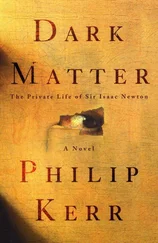Philip Kerr - A Man Without Breath
Здесь есть возможность читать онлайн «Philip Kerr - A Man Without Breath» весь текст электронной книги совершенно бесплатно (целиком полную версию без сокращений). В некоторых случаях можно слушать аудио, скачать через торрент в формате fb2 и присутствует краткое содержание. Год выпуска: 2013, Издательство: Quercus, Жанр: Триллер, на английском языке. Описание произведения, (предисловие) а так же отзывы посетителей доступны на портале библиотеки ЛибКат.
- Название:A Man Without Breath
- Автор:
- Издательство:Quercus
- Жанр:
- Год:2013
- ISBN:нет данных
- Рейтинг книги:4 / 5. Голосов: 1
-
Избранное:Добавить в избранное
- Отзывы:
-
Ваша оценка:
- 80
- 1
- 2
- 3
- 4
- 5
A Man Without Breath: краткое содержание, описание и аннотация
Предлагаем к чтению аннотацию, описание, краткое содержание или предисловие (зависит от того, что написал сам автор книги «A Man Without Breath»). Если вы не нашли необходимую информацию о книге — напишите в комментариях, мы постараемся отыскать её.
A Man Without Breath — читать онлайн бесплатно полную книгу (весь текст) целиком
Ниже представлен текст книги, разбитый по страницам. Система сохранения места последней прочитанной страницы, позволяет с удобством читать онлайн бесплатно книгу «A Man Without Breath», без необходимости каждый раз заново искать на чём Вы остановились. Поставьте закладку, и сможете в любой момент перейти на страницу, на которой закончили чтение.
Интервал:
Закладка:
‘Mine, too,’ I admitted, and followed the Abwehr colonel out of the door of the crypt. ‘I haven’t been such a bag of nerves since the last time the RAF came to Berlin.’
At the door the colonel opened the file excitedly and looked at the photograph of the man on the first page who, unlike Dyakov, was clean-shaven. Von Gersdorff covered the lower half of the man’s face with his hand and glanced at me.
‘What do you think?’ he asked. ‘It’s not the best photograph.’
‘Yes, it could be him,’ I said. ‘The eyebrows look much the same.’
‘But either we draw a beard on the picture and ruin it or we’ll have to persuade Dyakov to see the barber.’
‘Perhaps we can get a copy made,’ I suggested. ‘Either way, the picture in this file is nothing like the one on the photograph you have of Major Krivyenko’s identity card. It’s a different man. The real Dyakov, I expect.’
‘Yes, it looks like you were right about that.’
‘If my nerves weren’t shredded already from being in here, I’d suggest looking for Dyakov’s case file. I bet there’s something about him on those shelves, eh, sergeant?’
‘I’ll be with you in a minute, gentlemen,’ said Sergeant Schlachter. ‘I’m just going to make a quick note on the record of where all of the devices today were found.’
Von Gersdorff nodded, thoughtfully. ‘Page one; personnel record of Major Mikhail Spiridonovich Krivyenko in the NKVD Police Department of the Smolensk Oblast; hand-signed by the then deputy chief of the NKVD, one Lavrenty Beria, no less, in Minsk; Dneprostroy Badge – that means he was an NKVD officer who once supervised forced labour in a prison camp; Merited NKVD Worker medal – I suppose that’s what you would expect of a major; Voroshilov Marksman badge for shooting, on the left breast of his tunic – well, that certainly fits with what we already know about the man, all right. That he can shoot. But shooting what? I wonder. Wild boar? Wolves? Enemies of the state? Fascinating. But look, there’s more work to do on this file before we can put it in front of the field marshal. I can see I’m not going to get much sleep tonight while I translate what’s in here.’
‘All right,’ said the sergeant, ‘I’m coming.’ But we never saw him again. Not alive anyway.
Afterwards we could only tell Major Ondra, his furious commanding officer – Sergeant Schlachter had been his most experienced man in Smolensk – that we hadn’t a clue what had happened.
He himself thought there had been a deliberately loosened floorboard near the door in the safe area on the near side of the warning sign; the space immediately underneath the wooden board had already been checked for a pressure switch and was perfectly safe, but each time someone stood on one end of the board an exposed nail on the opposite end had been lifted several millimetres near another nail on the wall; we – and others besides us – must have walked across that part of the floor many times before finally it made contact and completed the circuit which exploded several kilos of gelignite that were hidden behind a piece of dummy plaster-work in the wall. The blast knocked both the colonel and myself off our feet. If we had been standing in the room beside the sergeant we too would probably have been killed, but it wasn’t the explosion itself that killed the sergeant but the bicycle ball-bearings that were pressed into the plastic explosive like several handfuls of sweets. The combined effect of those was like a sawn-off shotgun and took the man’s head off as cleanly as a cavalryman’s sabre.
‘I hope you think it was worth it,’ said Major Ondra. ‘Eighteen months we’ve left that crypt alone, and for a damned good reason. It’s a fucking death trap. And all for what? Some fucking file that’s probably out of date by now anyway. It’s a bloody shame, that’s what it is, gentlemen. It’s a bloody shame.’
We went to the sergeant’s funeral that same evening. His comrades buried him in the soldiers’ cemetery at Okopnaja church, on Gertnereistrasse near the panzergrenadiers’ billet in Nowosselki, just west of Smolensk. Afterwards the colonel and I walked up to the banks of the Dnieper and looked back across the city at the cathedral where Schlachter had met his death just a few hours before. The cathedral seemed to hover above the hill on which it was built as if, like Christ’s assumption, it was physically being taken up into heaven, which was, I suppose the desired effect. But neither of us felt there was much consolation in that particular story. Or truth. Even Von Gersdorff, who was a Roman Catholic, confessed that these days he crossed himself largely out of habit.
When we drove back to Krasny Bor I noticed that Von Gersdorff’s glovebox now contained all of the Nobel 808 explosive that Sergeant Schlachter had made safe in the crypt – at least a couple of kilos of the stuff.
‘I’m sure I can find a proper use for it,’ he said quietly.
CHAPTER 12
Saturday, May 1st 1943
The international commission headed by Professor Naville was returning to Berlin to draft the report for Doctor Conti, the head of the Reich Health Department, leaving the Polish Red Cross – from the beginning the Poles had worked separately from the international commission – still in Katyn. Gregor Sloventzik and I escorted the members of the commission to the airport in the coach, and understandably they were glad to be leaving – the Red Army was getting closer every day, and no one wanted to be around when finally they arrived in Smolensk.
I was glad to see the back of them, and yet it was a journey that left me feeling pretty hollow as – her work with Professor Buhtz now concluded – Ines Kramsta had chosen to fly back to Berlin with the commission. She comprehensively ignored me all the way to the airport, choosing to stare out of the window as if I didn’t exist. I helped to carry her luggage to the waiting Focke-Wulf – Goebbels sent his own plane, of course – and hoped to say something by way of atonement for having suspected her of Dr Berruguete’s murder; but saying sorry didn’t seem equal to the task, and when she turned on her elegant patent heel and disappeared through the door of the plane without uttering a single word, I almost cried out with pain.
I could have told her the truth – that maybe she was looking for too much from a man. Instead I left it alone. For the few weeks while she’d been in Smolensk, my life had seemed like it mattered to someone more than it did to me; and now that she was going, I was back to not caring about it very much one way or the other. Sometimes that’s just how it is between a man and a woman: something gets in the way of it, like real life and human nature and a whole lot of other stuff that isn’t good for two people who think they’re attracted to each other. Of course, you can save yourself a lot of pain and trouble by thinking twice before you get into anything, but a lot of life can pass you by like that. Especially in a war. I didn’t regret what had happened – how could I? – only that she was going to live the rest of her life in complete and total ignorance of the rest of my life.
After this poignant little scene, Sloventzik and I got back into the coach and rode it back to the wood, where we found a scene of great excitement: the Russian POWs, working under the supervision of the field police and Alok Dyakov, had found another grave. This one – number eight – was more than a hundred metres to the south-west of all the others and much nearer the Dnieper, but I paid little attention to this news until Count Casimir Skarzynski, the secretary general of the Polish Red Cross, informed me during lunch that none of the bodies in grave eight were dressed for winter. Moreover their pockets contained letters, identification cards and newspaper clippings that seemed to indicate they had met their deaths a whole month after the other Poles we had found. A discussion ensued between Skarzynski, Professor Buhtz and Lieutenant Sloventzik about the Russian internment camp from which the men had been removed, but I kept out of it and as soon as I was able I went back to my hut and tried to contain my impatience while Colonel von Gersdorff stayed in his own hut translating the file we had recovered from the crypt at the Assumption Cathedral.
Читать дальшеИнтервал:
Закладка:
Похожие книги на «A Man Without Breath»
Представляем Вашему вниманию похожие книги на «A Man Without Breath» списком для выбора. Мы отобрали схожую по названию и смыслу литературу в надежде предоставить читателям больше вариантов отыскать новые, интересные, ещё непрочитанные произведения.
Обсуждение, отзывы о книге «A Man Without Breath» и просто собственные мнения читателей. Оставьте ваши комментарии, напишите, что Вы думаете о произведении, его смысле или главных героях. Укажите что конкретно понравилось, а что нет, и почему Вы так считаете.












